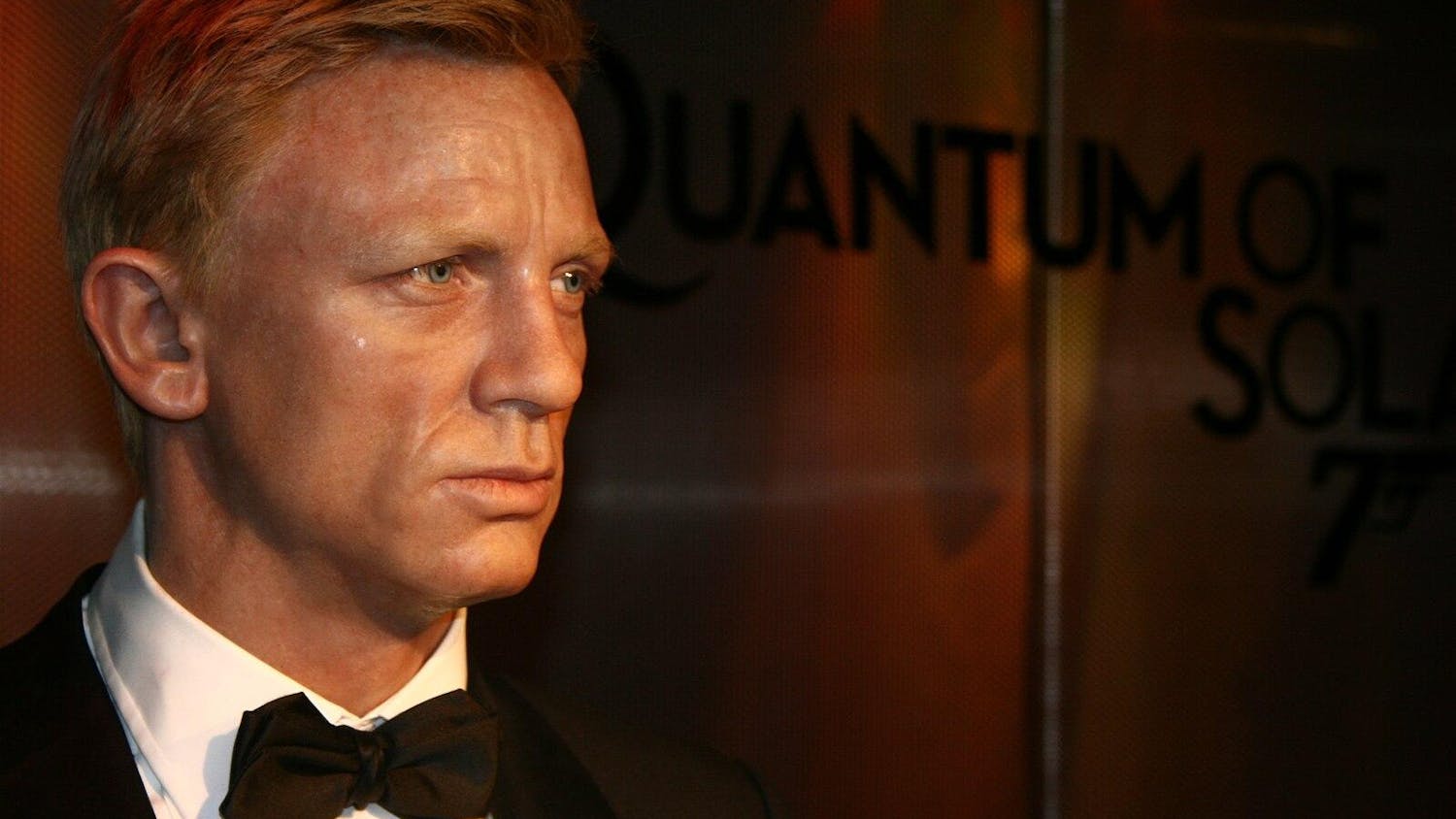“Marie Antoinette” (2012), written by David Adjmi, is a theatrical retelling of the life and death of the infamous queen who led France up until its revolution. The Tufts Department of Theater, Dance, and Performance Studies’ production follows Marie’s life as her reputation becomes ruined and the French citizens turn on the royal family.
Through Marie’s story, we tackle very strong notions of not only what it means to be a woman, but also what it means to be a foreigner. To take on either is difficult, but as an Austrian, Marie must do both. As she trips and struggles to fulfill others’ ideas of what she should be, we see just how seemingly impossible it is to be loved by all. Marie tells the Revolutionary (Sam Dieringer) that no one will be loved forever: “They will love you until they no longer need you.” And, as is evident in the show, when they no longer need you, they will destroy you.
Before the revolution begins, Marie’s name is changed from Maria Antonia to the French Marie Antoinette as she and her husband ascend to the throne. Then she starts to lose everything: first her home, then her jewelry, then her clothes, then her family, her hair and finally, her life.
The production design of the show does most of the heavy lifting in building and sustaining the world and, in particular, the show’s set and costumes breathe life into the play.
The costumes, designed by Tate Olitt, are not only beautifully put together but also serve to push the story along. Marie’s outfits in Act One are elaborate and colorful, taking up the most space and quickly drawing your eyes with their bright pastels. However, as the revolution gains ground, her clothing begins to reflect the state of the royal family, becoming more and more basic, with even the use of onstage dressers helping to show Marie’s loss of power throughout the show.
The set, designed by Ted Simpson, is a runway built into the floor and lit by a wall of stage lights. The name “MARIE” hangs from the lighting grid in large, glittery letters. Monitors on the theater’s back wall display location names and newspaper clippings matching the events of the show.
While Adjmi’s script creates an intrinsic conversation about what it means to be both a woman and a foreigner in society and the weight that falls on Marie’s shoulders as queen, it also has a few glaring drawbacks. The script holds back on key moments of Marie’s life, including her inevitable execution at the end of the show. This moment is minimalized, changed to a monologue from Marie as she sits alone onstage instead of a literal depiction of how heavy this moment in history was. Instead, the script spends more time dragging out jokes that are not very funny, waiting for a punchline that will never land. As such, the show squanders potential that could have made it great.
However, despite the shortcomings of the script, the full cast gives impressive performances throughout. Every actor feels a part of the world from the start, and each person embodies their character throughout, whether they’re a starring scene member or not. The three performances to watch out for are Thérèse de Lamballe (Ledao Gavaldà), Sheep (David Palamar) and Revolutionary (Dieringer).
Gavaldà nails every humorous moment, filling the awkward space of the show. Palamar’s Sheep initially seems like an unnecessary and out-of-place character, but he quickly becomes Marie’s mentor. His initial goofy and fun nature draws the audience in before the true purpose of Sheep is revealed as he becomes harsh and violent, an impressive switch. Dieringer delivers an intimidating performance as the Revolutionary, the one character to physically strip Marie of her humanity. His threatening stance sends chills throughout the audience and his booming presence will easily attract your attention.
Marie (Tess Kaplan) almost never leaves the stage, and throughout the show, she delivers some of the most biting lines. “I wasn’t raised, I was built, and now they’re killing me for it,” Marie says, detailing all she has given up for the life she now leads.
The show is just interesting enough to keep the audience engaged, though it lacks a true emotional punch. While we can sympathize with Marie, the script does not give us enough to truly care about her fate. The words on the page may not be the most impressive or world-changing, but the cast and crew, the production design and the directorial vision of this show create a production worth seeing.
The show also is a wonderful representation of the price of womanhood. In late 18th-century France, womanhood was represented by good manners, wearing the proper clothing and not using vulgar language or wearing the proper clothing. Similarly, to be a foreigner both then and now meant to strip away your old self and fully conform to the new society.
Marie, as a woman and a foreigner in France, is a clear showcase of how, in order to survive in the world, one must give up who they are for who society wants them to be. And if they do not, society will punish them.
“Marie Antoinette” is running in Balch Arena Theatre until Sunday. Tickets are available on the Tufts Drama & Dance ticket website or at the Aidekman Box Office.






